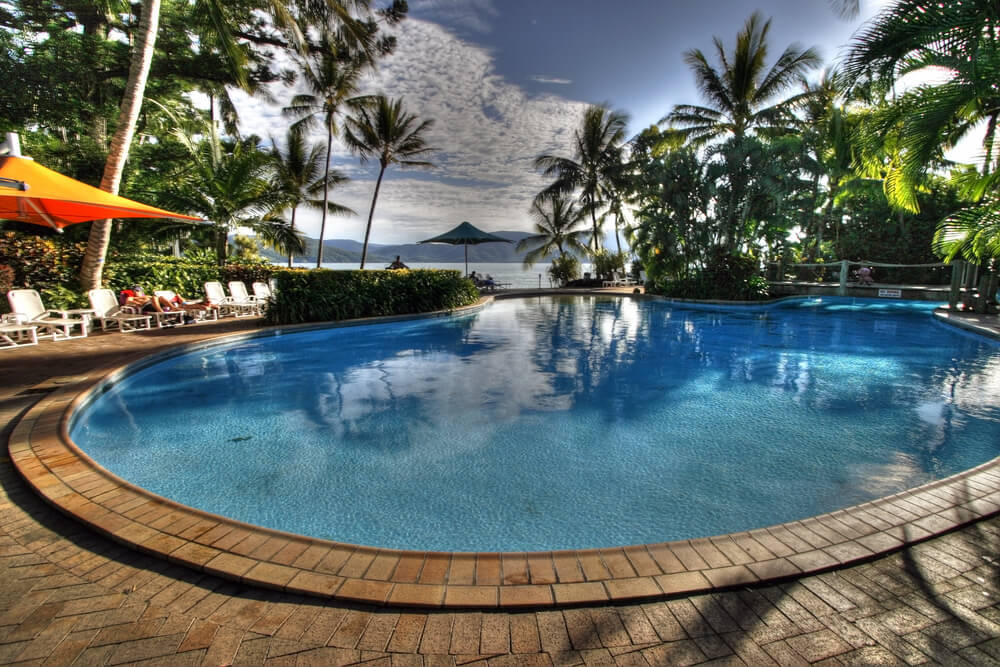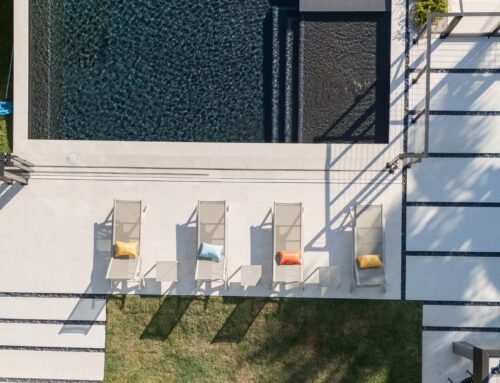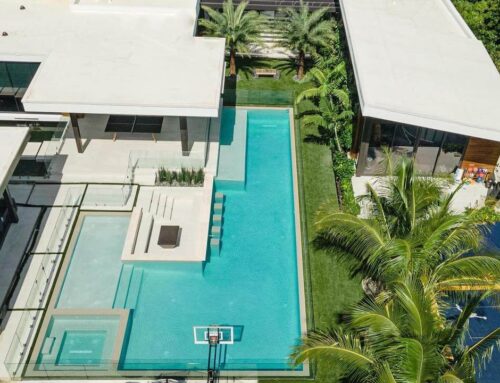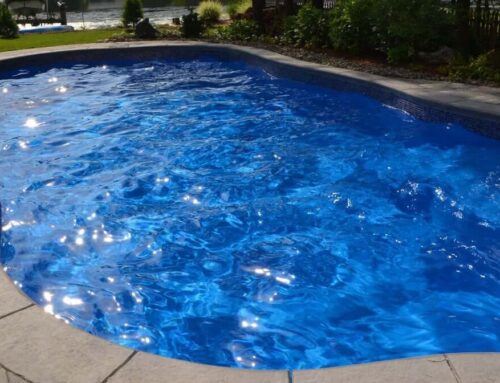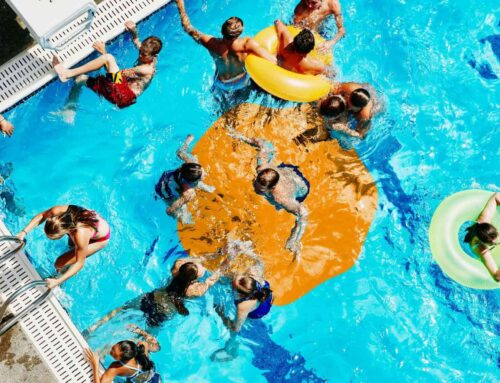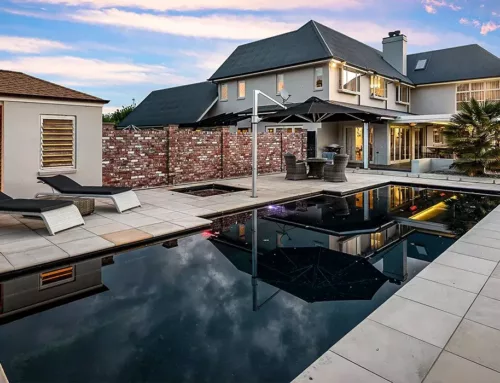Saltwater pools have been rising in popularity for the past couple of years, and we fully understand why. They have significant health benefits and can also contribute to rehabilitation.
Besides having less chlorine and other pool chemicals, they have less salt than you find in the sea or the ocean. They are gentler on your eyes and less irritating. They also have a soothing effect on the skin and are non-irritating to the lungs. A saltwater pool is safer if you have small children or pets.
So if you have decided to convert your existing pool into the best salt water pool system or want to build one from scratch, we are here to guide you through it.
What Is a Saltwater Pool?
A saltwater pool is a pool like any other. The main difference is that here you don’t use as much chlorine, but a salt water chlorinator, also known as salt chlorine or salt system generator.
Unlike when using chlorine and filling the pool with chemicals, a salt system generator creates free chlorine using the pool waters’ low salinity levels. It makes the entire process more natural and costs less than chlorine maintenance.
Installation of a Saltwater Pool: How Much Does It Cost?
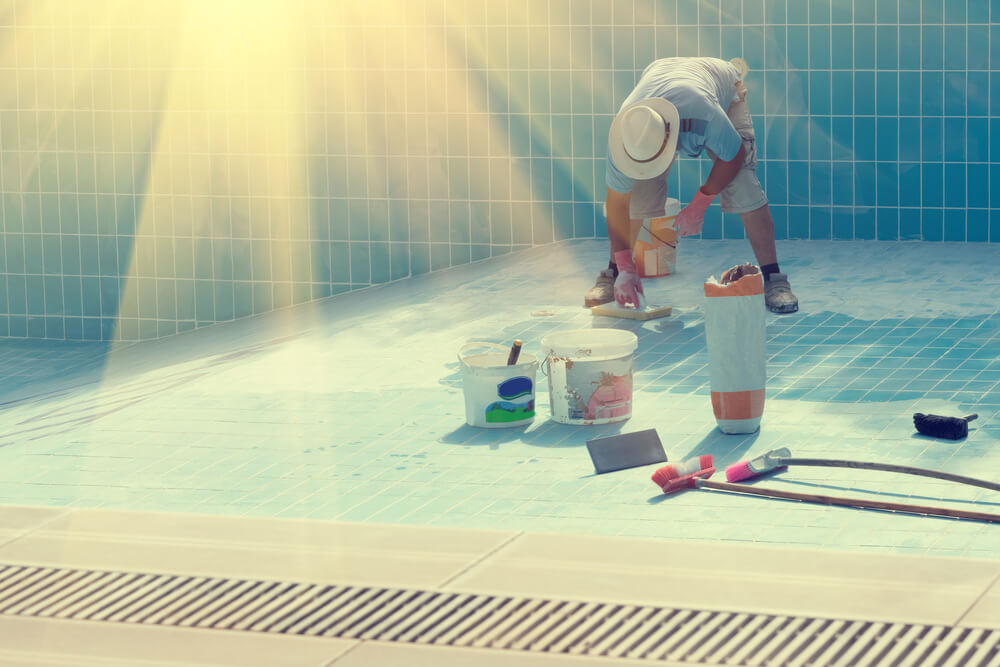
If you already have a pool and are considering a salt water system for an above-ground pool, you’ll be happy to hear that you can easily do it. And it’s also not that expensive.
Regarding this route, the cost would usually be between $500 and $2500. Everything depends on the size of the generator you would need for your pool. But it is good to know that it’s far less expensive to make your private sea oasis if you already have a pool and don’t have to build one from zero.
Starting from scratch, a salt water pool system for an above-ground pool can be pricey since you must consider all the costs of building, design, and system installment. Depending on the size of the pool, any add-ons, and materials used, a new pool can cost from $12,000 to $70,000.
What Shape and Size Can I Choose for My Saltwater Pool?
If you don’t already have a pool to which you can add a salt water system generator, there are a few things you have to consider.
Choosing the size and shape of the pool will first and foremost depend on the space you have designated for the pool. You have to consider whether you will have a deck and the size, a sitting area, or maybe even a BBQ area. Before building a pool, you must consider these details because they will impact the size and shape.
Once you have determined your metrics, you must choose an appropriate salt water chlorinator. Why is this important? If you select a generator in the wrong size, it will impact the salinity levels. And you don’t want to go over the safety recommendations, around 3000 ppm (parts per million).
It is essential to mention that if you already have a pool, it needs to be compatible with the new pump and filter system. We recommend you call in an expert to help you choose the best salt water pool system instead of doing this on your own.
Types of Materials To Use for and Above-Ground Saltwater Pool
When choosing materials, you should always ensure they are compatible with your saltwater system. Why are we mentioning this? Because there is a difference between an above-ground saltwater pool and a regular saltwater one.
The most common materials for above-ground pools are aluminum, steel, and resin.
Aluminum and steel are not good options for the above-ground saltwater pool due to how quickly they oxidize and corrode. Resin would be perfect for the above-ground saltwater pool, as it will not only stand the test of time and won’t deteriorate but can also easily be replaced.
Materials To Use for a Regular Salt Water Pool
Stone is always a fantastic choice for regular saltwater pools as it doesn’t change its form, doesn’t deteriorate, and can withstand any weather conditions. Many options include concrete, slate, granite, and flagstone.
It would help if you also thought about what materials to use for lighting inside the pool and other pool equipment. Stainless steel is always a fantastic choice. While the amount of salt is not nearly close to the likes of the sea, it can cause different metals to corrode, which is something you should try avoiding.
What Is a Saltwater Chlorinator, and How Much Does It Cost?
A chlorinator is a machine that provides chlorine to the pool. The entire system is found next to your pool, which is mostly not visible to the naked eye. A chlorinator has two main components: a cell and the control board. It works so that the water flows through the cell where the salt is turned into tiny bubbles creating free chlorine.
When it comes to installation, the cost can be between $600 and $2000. While it may seem pricey at first glance, most consumers comment that it does pay off since they don’t have to go to the pool store and purchase chlorine.
Maintenance

Maintenance of a saltwater pool is straightforward, and the main thing to remember is to watch out for free chlorine levels produced by the salt water chlorinator.
The chlorinator is also responsible for salinity and pH levels which you don’t want to be low. It keeps the sanitization in check and the pool safe to swim in.
Maintenance can cost around $50 to $100 per year, which is far less than regular chlorine pools, which can go up to $300. And the cell unit replacement should be done every 4 to 7 years, costing you around $800.
Remember that you should empty the basket where the pump is and clear the skimmer daily.
You can reduce the vacuuming and stabilize the levels to a weekly task.
However, if you do not want to do this on your own, you can always hire a local pool service to do this for you.
Final Thoughts
In this article, we have gone over everything you might need if you wish to have a pool with seawater. We hope it has provided enough guidance on what you can expect.
If you need an estimate for a brand new pool or want to convert an existing one, contact us at your earliest convenience. Here at Florida Pool Patio, licensed professionals are at your service and will help you with any swimming pool repairs you need.

